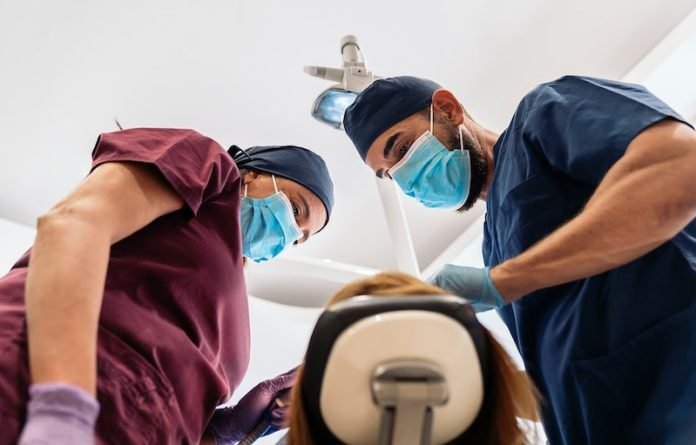
A team of researchers at the University of Virginia has made an exciting discovery that could help prevent severe COVID-19 in people with diabetes and obesity.
These people are at high risk for severe COVID-19, and with the effectiveness of current treatments dwindling, new options are desperately needed.
In the study, the researchers found a metabolic pathway that can reduce inflammation caused by COVID-19 infections and also promote lung recovery in patients.
They hope this could lead to a possible treatment that could be added to existing antiviral therapies to treat severe COVID-19 in at-risk patients.
The new method targets a carrier of fuel to the powerhouses of our cells, called mitochondria.
By reducing the activity of this carrier, the researchers were able to protect obese mice from severe illness caused by both influenza and COVID-19.
This reduced the harmful inflammation caused by the virus and promoted metabolic health, while also preventing dangerous blood sugar spikes linked to COVID-19 and promoting lung recovery after pneumonia caused by COVID-19 and influenza.
The researchers noted that this approach worked in synergy with the antiviral component of the drug Paxlovid, called nirmatrelvir, to reduce mortality in mice.
This suggests it may be possible to use an insulin-sensitizing drug to achieve similar results in humans with COVID-19.
The team tested their approach on human lung tissue samples and found that the drug was able to diminish cellular inflammation, which is a promising sign.
This drug is currently being developed to treat liver damage in patients with non-alcoholic fatty liver disease, but the researchers believe it could also be used to treat COVID-19 in high-risk patients.
The drug has a great safety profile, according to the researchers, which is important for people with diabetes and obesity who may experience side effects from other treatments like steroids.
The researchers are now planning a clinical trial in humans with COVID-19 using the insulin-sensitizing drug, which is being developed by Cirius Therapeutics.
They hope that their research can make a difference for people with diabetes and obesity who are at high risk for severe COVID-19.
By targeting the carrier of fuel to cells’ powerhouses, they believe they can reduce inflammation, promote metabolic health, and prevent dangerous blood sugar spikes associated with the virus.
If you care about COVID, please read studies about Vitamin D deficiency linked to severe COVID-19, and how some diets could help manage post-COVID syndrome.
For more information about COVID, please see recent studies about nasal spray that lowers COVID-19 infection by 60%, and results showing zinc could help reduce COVID-19 infection risk.
The study was conducted by BiBo Zhu et al and published in the journal Science Immunology.
Copyright © 2023 Knowridge Science Report. All rights reserved.



